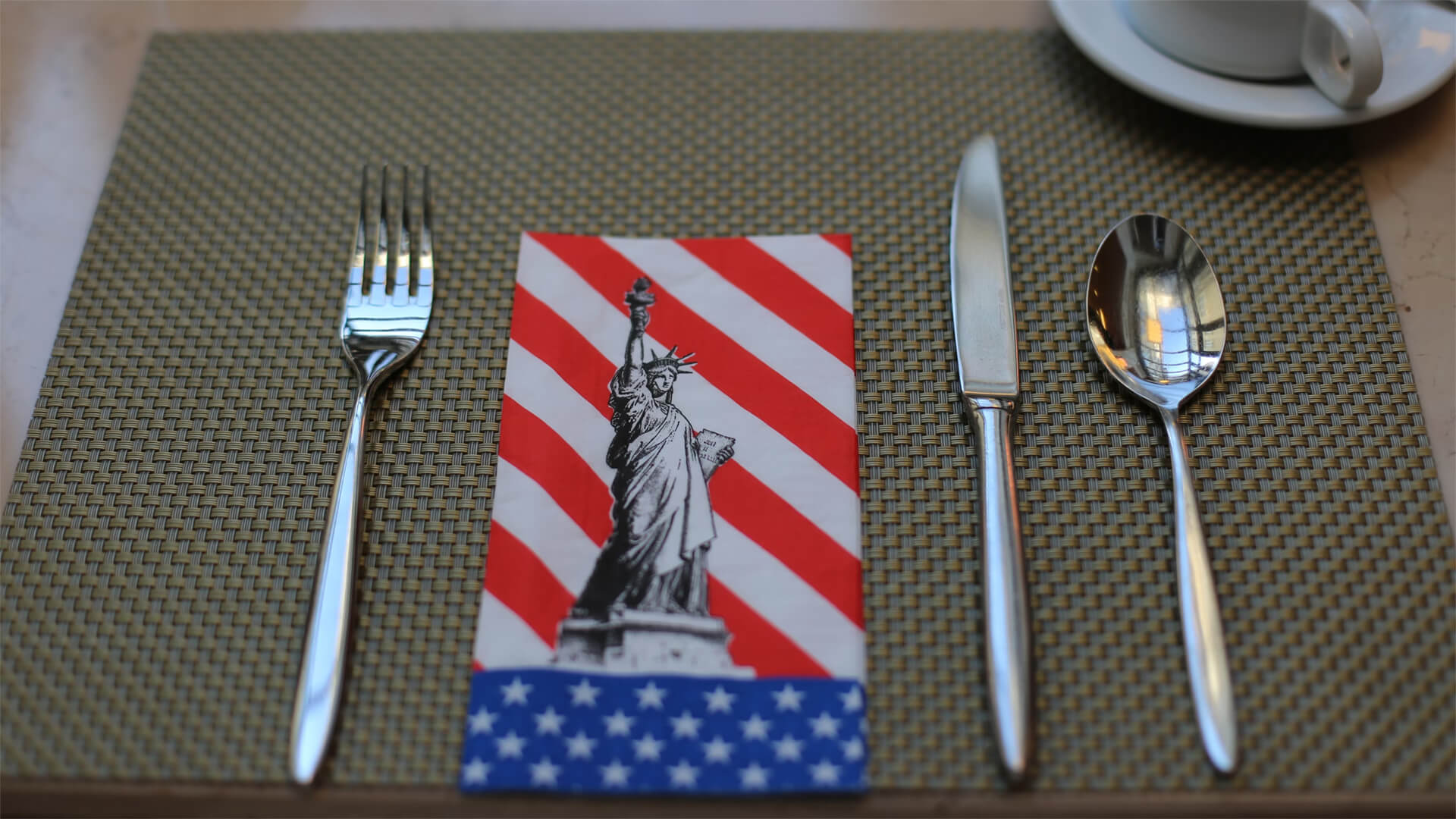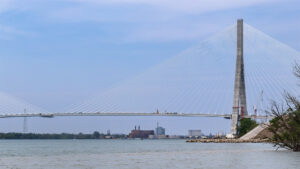American imperialism is not the same as European imperialism. The Europeans wanted power, prestige and economic gain, while the US was in it for security. So, what will this look like for the Americans moving forward?
With current strategic holdings in places like Guam, the Northern Mariana Islands, and American Samoa, further expansion in Asia is more of a nice-to-have, than a need-to-do. Should the US want to make some moves, here are some of the places and considerations that would be involved.
Places like Sao Tomé and Principe, the Azores, and Canaries have some nice positioning for Africa, and Socotra could be valuable for Middle Eastern operations. Then there are some places that bring in another layer of risk, but offer some big incentives – Panama for the canal, Greenland for strategic positioning, or Iceland for importance in the North Atlantic. Cuba and Singapore are interesting, but more complicated. There’s some obvious history with Cuba that makes involvement spooky, but having a foothold would make national defense downright breezy. Tampering with the very solid security partnership with Singapore seems too risky, but having a firmer foot in Southeast Asia could be important in a deglobalizing world.
Yet to existing cooperative security arrangements, the US already enjoys the benefits of influence in almost all of these places without the need for boots on the ground, much less the grinding migraines that come from actual occupations. Expanding into new territories would require managing populations and infrastructure, which could weaken US strategic stability and risk turning allies hostile. What I’m getting at here is if it ain’t broke, don’t fix it.
Here at Zeihan on Geopolitics, our chosen charity partner is MedShare. They provide emergency medical services to communities in need, with a very heavy emphasis on locations facing acute crises. Medshare operates right in the thick of it, so we can be sure that every cent of our donation is not simply going directly to where help is needed most, but our donations serve as a force multiplier for a system already in existence.
For those who would like to donate directly to MedShare or to learn more about their efforts, you can click this link.
Transcript
Hey everyone, Peter Zeihan coming to you from the Bay of Islands and everyone is talking about conquering countries all of a sudden. So I figured it’d be a good point to review American imperialism. And if there were to be a new chapter of the United States going at and grabbing territories, what sort of territories would we be interested in?
Key thing to keep in mind. Imperialism. American style is not like imperialism. European style. The Europeans are relatively small countries compared to the United States, whereas the United States has a continental landmass that has some of the best lands in the world. So for the Brits and the French and the Germans and everybody else going out to grab a chunk of territory in order to Improve their own economic prospects. That makes a certain amount of logical sense. For the United States, it never really has. When we were going through reconstruction industrialization, we were still processing the best parts of one of the largest continents in the world. And now that we have a heavily driven services economy that is the most productive on the planet, it’s really hard to imagine the United States going out and occupying a piece of land in order to get X, resource or a trade route.
Instead, when the United States thinks about imperialism, it’s about not about the money. It’s about security. So we’re not French. We’re not after just to get a big chunk of land that looks good on the globe map. And we are not British, where we’re looking to go out and grab economic nodes that we can then profit from.
We’re looking for small chunks of very easily defendable land with low populations that don’t generate security heartburn, but instead provide strategic opportunities or limit the strategic opportunities of our foes. And that is a very short list of countries, especially when you consider places that the U.S. already controls. So, for example, if you’re in the Pacific, you look at places like the Northern Mariana Islands, which are not too far from Japan or Guam, which is not too far from the first island chain or American Samoa in the South Pacific.
These are chunks of territory that the United States gained from the last round of expansion in World War Two, and before that, in the age of imperialism, the 1800s. And there’s really nothing else in that area that we need. We already have what we need. If you’re going to look at, further west, there are a few chunks of territory that I would find strategically interesting.
The most complicated of them would be a place called Sao Tomé and Principe, which is a small African island nation in the Gulf of Guinea off the south. You know. Well, you know, you know, how Africa just kind of does that thing. It’s it’s in that part in the middle or that’s West or Southwest. I don’t know.
Anyway, you’re talking about a country with a population of 200,000 or, you know, if you go for, just for principle, a country with just a population of about 10,000, that is something that kind of fits the bill, would allow you to project power in the entire belt of territory from South Africa to Nigeria, to Senegal, with having a very small defense platform.
Even better would be territories like the Canaries or the Azores, which allow the United States to block potential foes from coming in from the eastern hemisphere of the Western Hemisphere and project power to Europe as well. Now, if those last to the Azores and the Canary sound familiar, it’s because we’ve already seized us at one point during World War Two, and we gave them back because the countries who control those are Portugal and Spain, who are NATO allies.
One of the things that the United States, excels at is convincing someone that we’re an ally and we take care of all the naval power issues, so you don’t have to worry about it because it’s expensive. If in exchange, you give us security, supremacy and specific footprints of land, that is absolutely our deal with the British when it comes to Diego Garcia, which is our preferred platform in the western Indian Ocean.
So American imperialism isn’t like classic imperialism in many ways. We don’t even change the nameplate on the chunk of territory, so long as we can have physical access to it. So these are all the things that the United States, for the most part, already has, whatever access it needs. And so there’s no need to go out and physically grab the territory.
The exception would be Sao Tome and Principe. Only reason you would do that is if you decide you really want to be a major power in Africa on a day in, day out basis. No American administration has made that decision yet. So, you know, we haven’t really gone for it. Let’s say you wanted to step it up and loosen your definition of what’s a good idea, and go after territory that, still has good security parameters for projection, but it’s going to be a lot heavier.
Carry, in terms of running it, because it either has a larger population or it has land borders. You’ll notice that everything that I’ve laid out so far is an island. And you’re really willing to put your back into a security based empire in a semi-classical sense. This is where Donald Trump has plucked Panama and Greenland.
Panama has a country, has a population of over 4 million. And one of the biggest drug problems and human smuggling problems in the world. So if we were to go into Panama just for the canal, we would very rapidly get caught up administrating a place. It’s kind of a basket case. And you would only do that if you felt that the canal was that important.
Keep in mind, the United States already has unrestricted access to canal, and while we do have to pay for transit because we are not paying for upkeep, that also means that whenever the US military wants to go through, everyone else gets shoved to the back of the line. I’d argue got a pretty good deal there already.
Second one, Greenland is, of course, all in the news these days. Trump is wanting to buy Greenland for quite some time. And yes, while you can project power from Greenland, no argument there. And we use it for space tracking. And yes, it has a population under 100,000 people.
It’s a huge chunk of territory, and the people who live there are extremely poor. And if the United States were to take it over, we would then be responsible for the entire territory. One of the beautiful things we have about the make up right now is that Denmark is one of our fastest allies when it comes to doing things in Greenland, they have never once said no. And when it comes to doing things in the Baltic Sea, in the North Sea, which are an order of magnitude more important, they have never said no.
So if we were to go in and snag Greenland, obviously we could do it if we wanted to. It might cost us, one of our strongest and most loyal allies in one of the most sensitive parts in the world. Moving forward. I would say that that’s not the best plan. Iceland kind of falls into the same category.
Population of under million dominates the North Atlantic. It’s an independent country. But if you wanted to project power into the Russian sphere, it is a fantastic platform, especially in collaboration with the United Kingdom. But we already do that. And the Icelanders take care of their own business, and they have decided publicly to never field a military.
They will just let the United States do it. But the cost for that is the United States is allowed to do whatever it wants, whenever it wants. So we get all the benefits of occupying the territory without actually having to pay for occupying the territory.
The final two that might meet this criteria are a pair of countries Singapore and Cuba. Singapore dominates the Strait of Malacca, and any American military presence there would allow us to empower or destroy any country, depending on that route for trade. And that could be Russia. That could be Iran, that could be Saudi Arabia, that could be China.
So, you know, that could be handy. And, Cuba, because it dominates the interest of the Gulf of Mexico, is a very, near and dear issue to American strategic thinkers because without it, it’s very difficult to do any sort of maritime shipping between the Gulf Coast and the East Coast. And as we found out during the Cuban Missile Crisis, if the Cubans were to host some, intermediate range weapons systems, that would be a real problem for us as well.
But but in both of these cases, you know, these are big countries. Cuba has this many people. Where Singapore is about 5 million. Singapore is one of the most advanced countries on the planet. And Singapore has kind of made a deal with us, very similar to, say, Denmark. So the United States actually has a dedicated aircraft carrier berth in Singapore that the Singaporeans built. And whenever we’ve had a security issue going back to the time of the Vietnam War. The Singaporeans have always been extraordinarily helpful.
So you get all the benefits of having the military footprint, but none of the costs of running or administering or occupying a country. Cuba. More problematic, of course, because of politics. If we were actually going to invade a country and occupy it with the intent of making it ours, I would say Cuba would be at the very top of that list.
But we’ve tried that before in the 60s. It wasn’t a lot of fun. We controlled this territory through most of the time between the Spanish-American War and then, we’re basically ran it as a colony, generated gobs of bad will. And we discovered it’s just easier to base things out of the continental, the United States or Puerto Rico, rather than deal with a population that is pathologically hostile to you.
So as long as in strategic issues, Cuba is neutered, we really don’t have a problem with it. And ever since, Castro died a few years ago, the Cuban government, while they’ve been prickly, has gone out of the way to make sure that we don’t think that they’re getting in bed with anyone we really don’t like in any ways we really don’t like.
So they don’t provoke an invasion. So where do we go? You know, I would argue that the United States right now, from a security point of view, has all the benefits of a globe spanning empire, but without actually having to pay for it. If we actually go and start taking over territories, that changes. You have to occupy populations.
You have to build infrastructure. The way we have it right now is most of these countries want to preserve their independence, and they feel that the best way to do that is to have a differential relationship with the United States security establishment going out there and taking the territory. Turns that on its head. You don’t just lose allies, the places that you are already projecting power from suddenly turn hostile on the inside.
And that is how empires ultimately fall apart.
Oh one more off Africa. And again, we would only do this if we felt that we really need to project power into Africa. There was an island called Socotra. It’s Yemenis. It’s off the Horn of Africa. A small little place. Easy enough to build the infrastructure if you wanted to project power into the Persian Gulf. As well as the Red sea in the entire east coast of the African continent.








